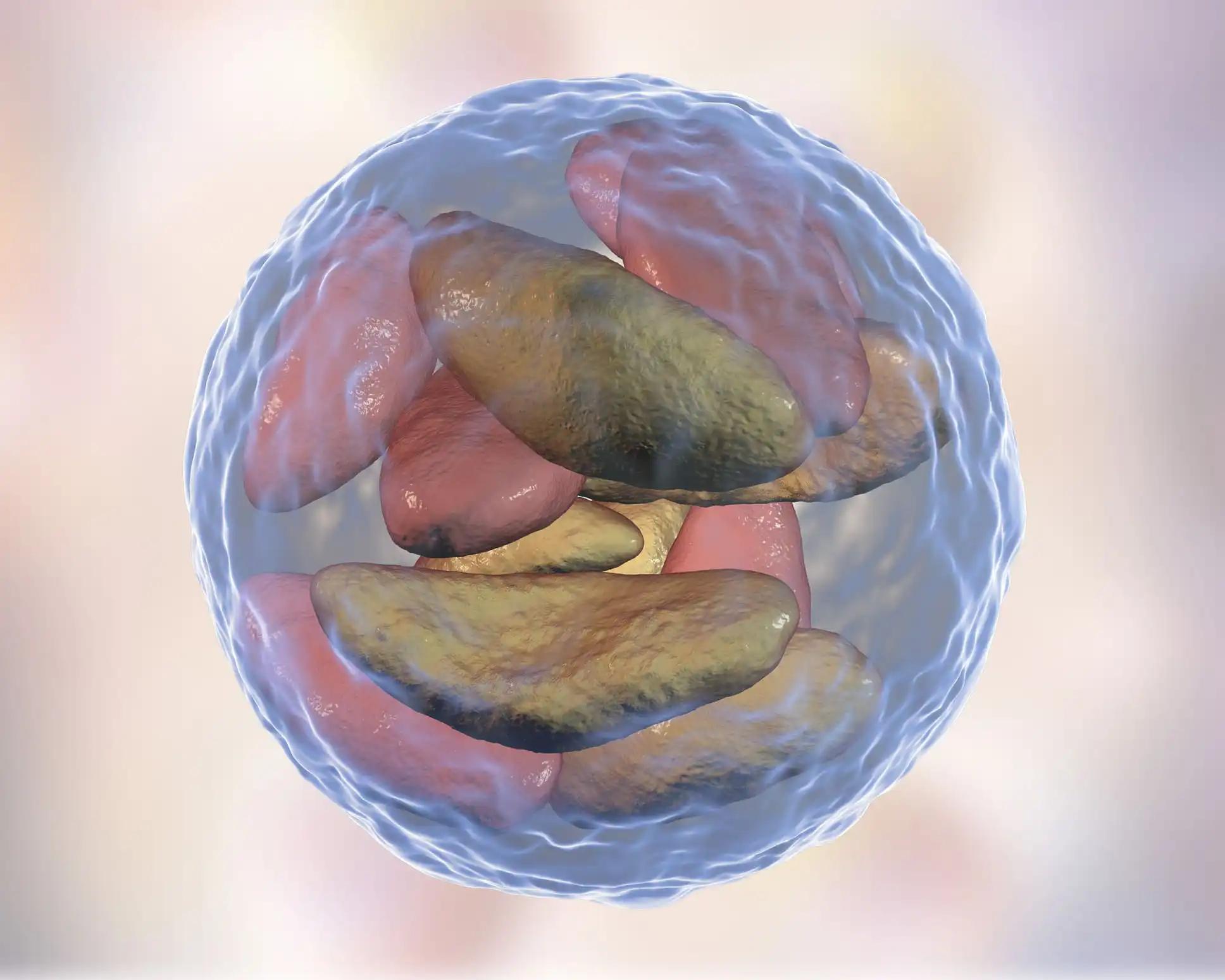KEY TAKEAWAYS
- The phase 3 PENELOPE-B trial aimed to assess whether patients with mutations in BRCA1/2 and additional BC susceptibility genes have worse outcomes than patients without modifications.
- Blood samples were collected from 898 patients, and germline variants in BRCA1/2 and 16 additional cancer predisposition genes were examined by targeted next-generation sequencing.
- The mutational status of 442 out of 445 individuals was successfully assessed, and mutated vs. wildtype was not predictive of outcome across all genes studied.
- Interaction tests for treatment arm/mutational status for all time-to-event outcomes showed that neither mutated (mt) nor wildtype (wt) patients benefited from palbociclib treatment.
- The study found that age significantly correlated with the mutational status of gBRCA1 and gBRCA2 genes but not other clinical factors.
- The identification rate of BC predisposition genes was lower than anticipated, with 10% in this case-cohort analysis.
Germline (g) mutations in BRCA1/2 are observed in about 14% of high-risk hormone-receptor (HR)+/HER2- BC patients and in 20% of patients with mutations in BRCA1/2 and additional BC susceptibility genes (Pohl-Rescigno E et al. JAMA Oncol 2020). Patients with a BRCA mutation discovered in ctDNA may benefit more from CDK4/6 drugs in metastatic BC (André F et al. J Clin Oncol 2020). From a total of 1250 PENELOPE-B patients, blood samples were collected from 898. Following a case-cohort design, 445 patients were sampled, and their germline variants in BRCA1/2 and 16 additional cancer predisposition genes (ATM, BARD1, BRIP1, CDH1, CHEK2, FANCM, MRE11A, NBN, PALB2, PTEN, RAD50, RAD51C, RAD51D, STK11, TP53, XRCC2) were examined by targeted next generation sequencing (NGS). The most critical factor in determining mutated status was the presence of a pathogenic mutation (mt) in any of the breast cancer susceptibility genes studied. Inverse probability weighting was applied in the weighted Cox proportional hazard models and the Kaplan-Meier estimates for the time-to-event endpoints (iDFS, distant disease-free survival [DDFS], and overall survival [OS]).
The mutational status of 442 out of 445 individuals was successfully assessed (placebo arm: 104 cases and 105 non-cases; palbociclib component: 114 points and 119 non-cases). There were 42 (9.5%) patients who had any mutation (9.1% in the placebo group and 9.9% in the palbociclib group), 15 (3.4%) patients had a gBRCA1/2 mt (one of whom carried a gATM mt and one a gCHEK2 mt in addition to gBRCA2 mt), and 29 (6.6%) had mutations in one of the other BC predisposition genes (n=8 CHEK2, n=7 PALB2, n=5 ATM, n=2 RAD50, n=1 for BARD1, FANCM, MRE11A, RAD51C, RAD51D, TP53 and n=1 both RAD51D and BRIP1). There was no statistically significant association between mutation status across all genes studied and clinical baseline characteristics. All 15 (100%) gBRCA mt carriers were younger than 50 compared to 238 (56%) wildtype (wt) patients (p=0.002), suggesting that age was a significant correlate of mutational status about gBRCA1 and gBRCA2 genes but not other clinical factors. Patients with any mutation had an iDFS rate of 80.9% at 3 years, while those without any modification had a 79.5% iDFS rate.
Overall, mutational status (mt vs. wt) was not predictive of outcome across all genes studied (hazard ratio [HR] = 1.015; 95% confidence interval [CI] = 0.558-1.784; hazard ratio [HR] = 0.970; 95% CI = 0.521-1.758; OS = 0.768; 95% CI = 0.274-1.615). Interaction tests for treatment arm/mutational status for all time-to-event outcomes showed that neither mutated patients nor wt patients benefited from palbociclib treatment (palbociclib vs. placebo; iDFS: hazard ratio 0.766, 95%CI 0.263-3.022; DDFS: 0.897, 95%CI 0.275-3.489; OS: 0.666, 95%CI 0.063-5.671). Patient subgroup analysis based on gBRCA1/2 yielded comparable but less robust results. The identification rate of BC predisposition genes was lower than anticipated, with 10% in this case-cohort analysis of 442 patients involved in the PENELOPE-B experiment. Patients with the gBRCA1/2 or another gene associated with a higher risk of developing BC fared no worse than those without.
Source:http://app.core-apps.com/sabcs2021/event/dc9d2b3da708ff9aa1fe9129cd0176ca
Clinical Trial:https://clinicaltrials.gov/ct2/show/NCT01864746
Sibylle Loibl, Jan Hauke, Karen Gelmon, Frederik Marmé, Corinna Ernst, Miguel Martin, Michael Untch, Hervé Bonnefoi, Erik Knudsen, Seock-Ah Im, Angela DeMichele, Laura Van’t Veer, Sung-Bae Kim, Harry Bear, Nicole McCarthy, Nicholas Turner, Agnieszka Witkiewicz, Federico Rojo, Peter A Fasching, José A García-Sáenz, Catherine M Kelly, Toralf Reimer, Masakazu Toi, Hope S Rugo, Carsten Denkert, Michael Gnant, Andreas Makris, Yuan Liu, Olga Valota, Bärbel Felder, Karsten Weber, Valentina Nekljudova and Eric Hahnen/Germline BRCA1/2 and other predisposition genes in high-risk early-stage HR+/HER2- breast cancer (BC) patients treated with endocrine therapy (ET) with or without palbociclib: A secondary analysis from the PENELOPE-B study/2021 San Antonio Breast Cancer Symposium. (n.d.). App.core-Apps.com. Retrieved May 9, 2023, from http://app.core-apps.com/sabcs2021/event/dc9d2b3da708ff9aa1fe9129cd0176ca



